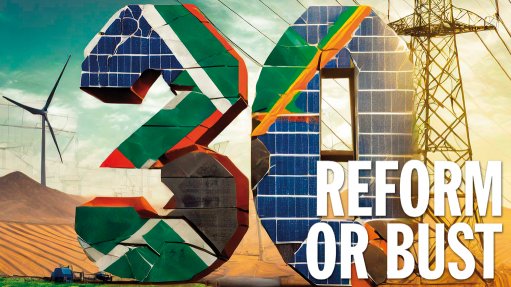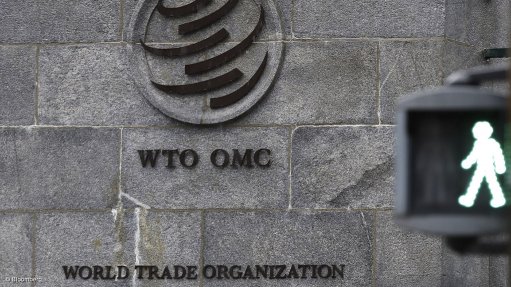Once again, we have a nonengineer as Energy Minister
In the film The Remains of the Day, Anthony Hopkins is a butler in a large country house. It is before World War II. The upper-class guests are all discussing the state of the world and of Germany. Somebody suggests that the opinion of the people should be taken into account. The common people.
A guest asks the butler some questions about international affairs. The butler cannot answer any questions; he does not know. He says: “Let us establish this quite clearly – a butler’s duty is to provide good service. It is not to meddle in the great affairs of the nation. The fact is, such great affairs will always be beyond the understanding of those such as you and I, and those of us who wish to make our mark must realise that we best do so by devoting our attention to providing the best possible service to those great gentlemen in whose hands the destiny of civilisation truly lies.”
But what if those ‘great gentlemen’ were not qualified for the job? What if?
South Africa’s new Energy Minister is Mmamoloko Tryphosa Kubayi. Her educational background is: a matric certificate obtained in 1997, a BA degree from Vista University, which she attended from 1998 to 2000, and a project management diploma, obtained from Damelin in 2002. She was chairperson of the Parliament’s Portfolio Committee of Telecommunications and Postal Services.
With such qualifications, how can she be Minister of Energy? Does she know how electricity is generated? How it is transmitted? What role South Africa plays in the African electricity grid? I doubt it. Her predecessor, Tina Joemat-Pettersson, was equally unqualified, being the holder of a BA degree in English and history from the University of the Western Cape and a higher diploma in education from the same university.
When you have unqualified Ministers, they are heavily reliant on advisers. Simply put, they ask people who are experts in the field to give them advice. This is where the wheels come off. The so-called experts in the field all have an agenda to push. Few of them are unbiased. If you canvass the opinions of many, some will say nuclear power is a good idea, while some will say wind power is a good idea. Some, while furiously cultivating their now legal backyard dagga plant, will say South Africa must buy hydropower from the Democratic Republic of Congo (one presumes after the threat of civil war has subsided) or gas power from Mozambique (more realistic but less likely).
You can, if you are the new Minister, ask the fellows at the Council for Industrial and Scientific Research for their opinion. I think they make no secret of the heavy support they give to wind power. And, thus, if you are the new Minister, you may well believe that they are right and will continue to believe so until you find that, for every wind turbine you build, you have to build a gas turbine to support the power that is not supplied when the wind does not blow.
Of course, there must be a massive amount of embarrassment. If you are a Minister of a country, and the Energy Minister at that, you are going to have to meet other Energy Ministers and talk the same language as them. Megawatts. Kilowatt hours. Units. For all I know, Kubayi may have taken a course in energy systems and can quite easily converse with others about the H constant of interconnected power systems or the benefits of load curtailment from nonload following generation. But it is not very likely, is it?
Back in the days of the National Party government, the Ministers of Energy (and Mineral Affairs in those days) were equally unqualified. Dawie de Villiers, for example, was Minister and an ex Springbok rugby scrum half. The big difference in those days was that State-owned electricity utility Eskom was wall-to-wall engineers. The boss was an engineer. And Eskom had worked out in fine detail the best way to run a power system. It produced the second cheapest power in the world (only Ontario Hydro was cheaper). And so, De Villiers could always ask Eskom. But to whom will Kubayi turn? All I can say to her is: “Be very careful of what you are told . . . and good luck.”
Comments
Press Office
Announcements
What's On
Subscribe to improve your user experience...
Option 1 (equivalent of R125 a month):
Receive a weekly copy of Creamer Media's Engineering News & Mining Weekly magazine
(print copy for those in South Africa and e-magazine for those outside of South Africa)
Receive daily email newsletters
Access to full search results
Access archive of magazine back copies
Access to Projects in Progress
Access to ONE Research Report of your choice in PDF format
Option 2 (equivalent of R375 a month):
All benefits from Option 1
PLUS
Access to Creamer Media's Research Channel Africa for ALL Research Reports, in PDF format, on various industrial and mining sectors
including Electricity; Water; Energy Transition; Hydrogen; Roads, Rail and Ports; Coal; Gold; Platinum; Battery Metals; etc.
Already a subscriber?
Forgotten your password?
Receive weekly copy of Creamer Media's Engineering News & Mining Weekly magazine (print copy for those in South Africa and e-magazine for those outside of South Africa)
➕
Recieve daily email newsletters
➕
Access to full search results
➕
Access archive of magazine back copies
➕
Access to Projects in Progress
➕
Access to ONE Research Report of your choice in PDF format
RESEARCH CHANNEL AFRICA
R4500 (equivalent of R375 a month)
SUBSCRIBEAll benefits from Option 1
➕
Access to Creamer Media's Research Channel Africa for ALL Research Reports on various industrial and mining sectors, in PDF format, including on:
Electricity
➕
Water
➕
Energy Transition
➕
Hydrogen
➕
Roads, Rail and Ports
➕
Coal
➕
Gold
➕
Platinum
➕
Battery Metals
➕
etc.
Receive all benefits from Option 1 or Option 2 delivered to numerous people at your company
➕
Multiple User names and Passwords for simultaneous log-ins
➕
Intranet integration access to all in your organisation


















